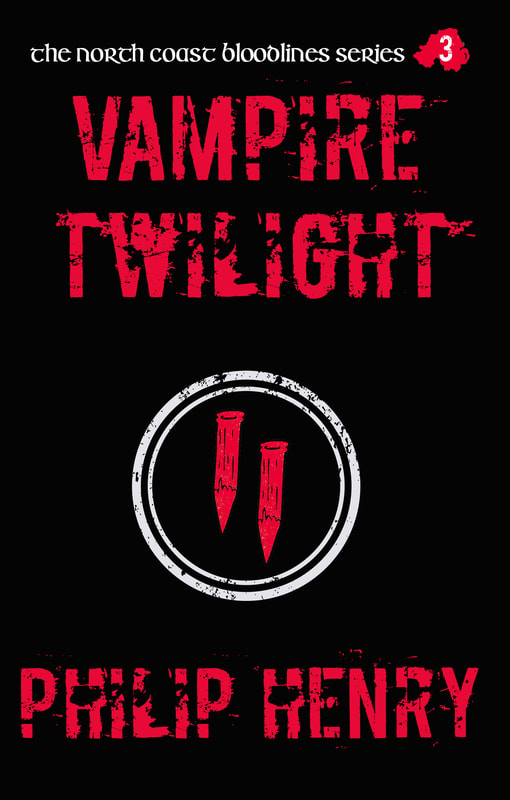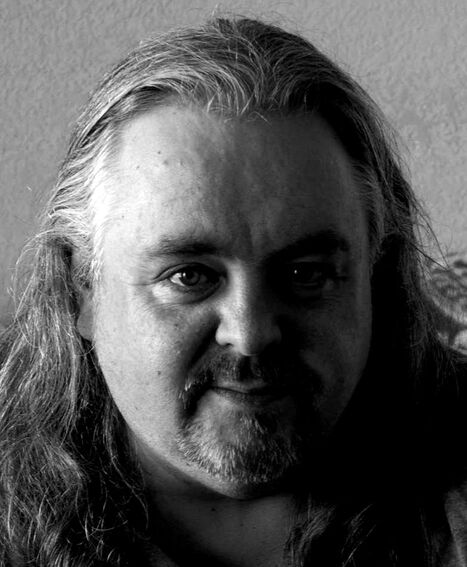
It gives me great pleasure to welcome Philip Henry onto the website today. Philip is a screenwriter, songwriter and author of eleven supernatural suspense novels.
Alex: Tell us a bit about yourself, Philip.
Philip: I was born at a very young age and spent most of my youth obsessed with Star Wars, aliens and anything paranormal. I have very vivid memories of watching all those old Universal movies from the 30s on a little B&W portable TV in my bedroom. Frankenstein, Dracula, The Wolfman, The Mummy, The Creature from the Black Lagoon. I loved all those old movies. I shared a room with my brother and it became a bit of a ritual that we would watch some old movie every weekend. I saw a lot of Hitchcock around that time too. We lived about five miles outside Ballymoney in a little group of eighteen houses. There were other kids my age so we had a great time playing in the surrounding fields and forests, exploring old, derelict (haunted?) houses, and the River Bann was only two fields away, so there was always plenty to explore. Of course, nowadays kids wouldn’t be given the freedom we were. We’d ride our bikes for miles and our parents were fine about it as long as we were home for dinner.
I think all that exploring fuelled my imagination. Whatever place we were exploring we would always invent a backstory for it, and it was usually horrific. LOL That’s how kids were back then; you were always trying to scare your mates with some story or other.
This storytelling urge bled into my school life too. I remember writing stories constantly in primary school. I have no idea what they were about. It’s a pity I didn’t keep any of them. I’d love to see them now. I attended a very small school in the country – there were only 33 kids in the whole school.
I don’t remember reading much back then, not until my early teens, when the library van used to come round in the summer. I got really into The Hardy Boys books then. I ended up with dozens of them. Until one day I decided I could probably handle a grown-up book. The first one I read was Dean Koontz’s Lightning. After that, Koontz and Stephen King featured heavily in my reading.
Alex: Tell us a bit about yourself, Philip.
Philip: I was born at a very young age and spent most of my youth obsessed with Star Wars, aliens and anything paranormal. I have very vivid memories of watching all those old Universal movies from the 30s on a little B&W portable TV in my bedroom. Frankenstein, Dracula, The Wolfman, The Mummy, The Creature from the Black Lagoon. I loved all those old movies. I shared a room with my brother and it became a bit of a ritual that we would watch some old movie every weekend. I saw a lot of Hitchcock around that time too. We lived about five miles outside Ballymoney in a little group of eighteen houses. There were other kids my age so we had a great time playing in the surrounding fields and forests, exploring old, derelict (haunted?) houses, and the River Bann was only two fields away, so there was always plenty to explore. Of course, nowadays kids wouldn’t be given the freedom we were. We’d ride our bikes for miles and our parents were fine about it as long as we were home for dinner.
I think all that exploring fuelled my imagination. Whatever place we were exploring we would always invent a backstory for it, and it was usually horrific. LOL That’s how kids were back then; you were always trying to scare your mates with some story or other.
This storytelling urge bled into my school life too. I remember writing stories constantly in primary school. I have no idea what they were about. It’s a pity I didn’t keep any of them. I’d love to see them now. I attended a very small school in the country – there were only 33 kids in the whole school.
I don’t remember reading much back then, not until my early teens, when the library van used to come round in the summer. I got really into The Hardy Boys books then. I ended up with dozens of them. Until one day I decided I could probably handle a grown-up book. The first one I read was Dean Koontz’s Lightning. After that, Koontz and Stephen King featured heavily in my reading.
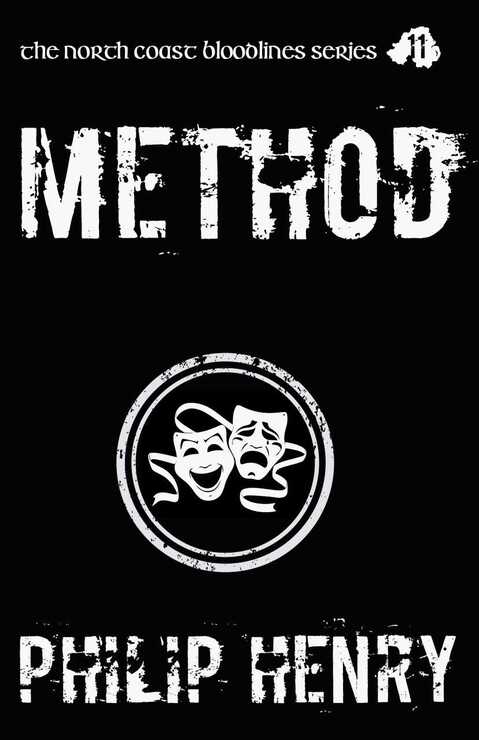
Alex: How would you describe your writing, and are there particular themes that you like to explore?
Philip: I get lumped in with horror writers, which is a double-edged sword. On the one hand, yes, I do write about supernatural things quite a lot and some pretty horrific things happen along the way. When I used to tell people, particularly women, that I wrote horror, they would do this faux shiver, as if someone had just walked over their grave, and then say something like: ‘Oh, I couldn’t read that sort of thing.’ And I understand why. There are a lot of horror authors out there who try to write the most visceral, graphic and disgusting deaths imaginable, but that’s not me. There’s a lot of humour in my books. I grew up watching films like Evil Dead II, The Lost Boys and An American Werewolf in London, and I always loved that mix of humour and horror. I think when you do something light-hearted in a book, it puts the reader off-guard, and then when the bad stuff happens it’s even more shocking, because it’s unexpected. So I prefer to call my stuff supernatural suspense, but how often do you see that aisle in a bookshop?
I suppose I write about outsiders a lot. It seems to be a very common trope with writers. Maybe it’s because writing is such a solitary pursuit and we identify with that oddball character who seems out of step with the rest of the world. When you’re at school, uniformity is the safe option if you want to be socially accepted, and most of us fall into line with that thinking. It’s only when you grow up and you think about that school weirdo and realise how much confidence they must’ve had not to fall in line. To walk their own path. You wonder where that came from. As a writer, I think about such oddballs (and believe me, I mean that term as a compliment) and what made them that way, and I wish I’d befriended more weirdos in my life, because they’re always much more interesting.
Philip: I get lumped in with horror writers, which is a double-edged sword. On the one hand, yes, I do write about supernatural things quite a lot and some pretty horrific things happen along the way. When I used to tell people, particularly women, that I wrote horror, they would do this faux shiver, as if someone had just walked over their grave, and then say something like: ‘Oh, I couldn’t read that sort of thing.’ And I understand why. There are a lot of horror authors out there who try to write the most visceral, graphic and disgusting deaths imaginable, but that’s not me. There’s a lot of humour in my books. I grew up watching films like Evil Dead II, The Lost Boys and An American Werewolf in London, and I always loved that mix of humour and horror. I think when you do something light-hearted in a book, it puts the reader off-guard, and then when the bad stuff happens it’s even more shocking, because it’s unexpected. So I prefer to call my stuff supernatural suspense, but how often do you see that aisle in a bookshop?
I suppose I write about outsiders a lot. It seems to be a very common trope with writers. Maybe it’s because writing is such a solitary pursuit and we identify with that oddball character who seems out of step with the rest of the world. When you’re at school, uniformity is the safe option if you want to be socially accepted, and most of us fall into line with that thinking. It’s only when you grow up and you think about that school weirdo and realise how much confidence they must’ve had not to fall in line. To walk their own path. You wonder where that came from. As a writer, I think about such oddballs (and believe me, I mean that term as a compliment) and what made them that way, and I wish I’d befriended more weirdos in my life, because they’re always much more interesting.
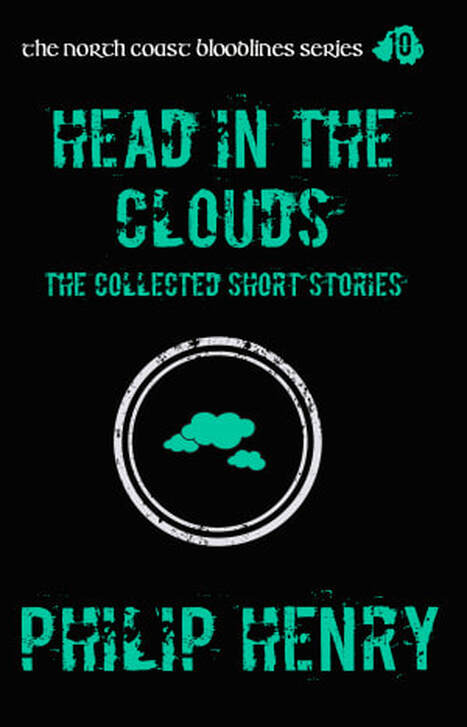
Alex: Are you a writer that plans a detailed synopsis or do you set out with a vague idea and let the story unfold as you write?
Philip: I usually know how my story starts and how it ends, and everything in-between gets made up en route. Of course, sometimes the ending changes. My first novel, Vampire Dawn, was originally supposed to have a completely tragic ending where EVERYONE died. I thought I was bucking the system and sticking it to the man by not giving my book a happy ending, but as I got closer to writing it, I slipped off my misunderstood-genius-writer persona and looked at the book as a reader, and I realised that ending would really tick me off if I was experiencing this story for the first time. So I changed it. It’s still not 100% happy, but it’s not depressingly bleak now either. It has hope. In the end it was very fortuitous that I did change it, because that book spawned two sequels that couldn’t have existed with the original ending.
Alex: Your last book was released in 2014, why such a long gap?
Philip: Head in the Clouds was my tenth book. It seemed like a good time to take a breather and re-evaluate things. I also had some interest in some of my film and TV scripts, so I wanted to put some more time and effort into that side of things and see if I could get a foot in that door. And though you haven’t seen my name on any blockbusters just yet, I have made some significant progress, so all I can say at this stage is stay tuned.
Philip: I usually know how my story starts and how it ends, and everything in-between gets made up en route. Of course, sometimes the ending changes. My first novel, Vampire Dawn, was originally supposed to have a completely tragic ending where EVERYONE died. I thought I was bucking the system and sticking it to the man by not giving my book a happy ending, but as I got closer to writing it, I slipped off my misunderstood-genius-writer persona and looked at the book as a reader, and I realised that ending would really tick me off if I was experiencing this story for the first time. So I changed it. It’s still not 100% happy, but it’s not depressingly bleak now either. It has hope. In the end it was very fortuitous that I did change it, because that book spawned two sequels that couldn’t have existed with the original ending.
Alex: Your last book was released in 2014, why such a long gap?
Philip: Head in the Clouds was my tenth book. It seemed like a good time to take a breather and re-evaluate things. I also had some interest in some of my film and TV scripts, so I wanted to put some more time and effort into that side of things and see if I could get a foot in that door. And though you haven’t seen my name on any blockbusters just yet, I have made some significant progress, so all I can say at this stage is stay tuned.
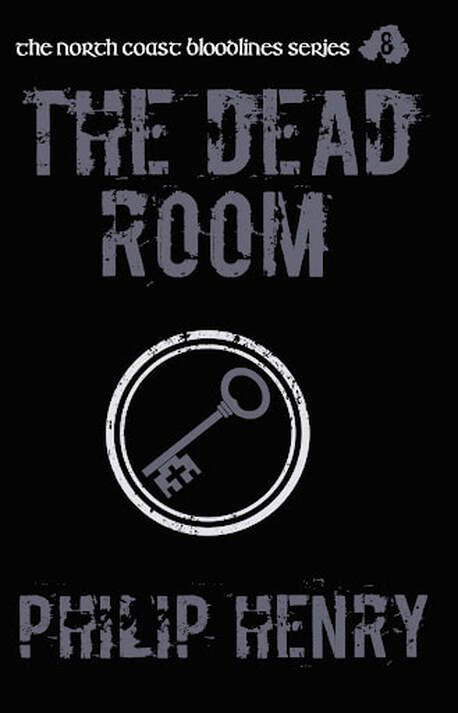
Alex: Tell us about your latest novel.
Philip: Method is the story of Sean Black, an aspiring actor from Portstewart. He comes to embrace the method style of acting, where the actor actually lives the part he’s playing, which would be fine if he was the lead in a rom-com, but what if he’s paying a drug addict… or a murderer? How far will he go?
It’s a book I’ve had in my head for years and I just kept coming up with different things to do with the character, so I eventually just asked myself what I was waiting for! This book was itching to get out, so I had to write it. People have told me for years that if I didn’t write horror I’d be much more successful, so with this psychological thriller, we shall see if they’re right.
Alex: What was the first book you read?
Philip: The first book I remember reading in primary school was Elidor by Alan Garner. I recall reading it but I couldn’t remember anything about the story so about six months ago I tracked down a copy on eBay and re-read it. Sadly, it’s actually not that good.
The only other book I remember reading around that age was The Lion, the Witch and the Wardrobe. That one is obviously a lot better. What stuck with me most when I read it at that age was the character of Edmund. Up until that point, everything I’d seen in films or TV was very black and white; there were goodies and baddies, but Edmund was the first time I saw that a character could change. That left an impression for sure.
Philip: Method is the story of Sean Black, an aspiring actor from Portstewart. He comes to embrace the method style of acting, where the actor actually lives the part he’s playing, which would be fine if he was the lead in a rom-com, but what if he’s paying a drug addict… or a murderer? How far will he go?
It’s a book I’ve had in my head for years and I just kept coming up with different things to do with the character, so I eventually just asked myself what I was waiting for! This book was itching to get out, so I had to write it. People have told me for years that if I didn’t write horror I’d be much more successful, so with this psychological thriller, we shall see if they’re right.
Alex: What was the first book you read?
Philip: The first book I remember reading in primary school was Elidor by Alan Garner. I recall reading it but I couldn’t remember anything about the story so about six months ago I tracked down a copy on eBay and re-read it. Sadly, it’s actually not that good.
The only other book I remember reading around that age was The Lion, the Witch and the Wardrobe. That one is obviously a lot better. What stuck with me most when I read it at that age was the character of Edmund. Up until that point, everything I’d seen in films or TV was very black and white; there were goodies and baddies, but Edmund was the first time I saw that a character could change. That left an impression for sure.
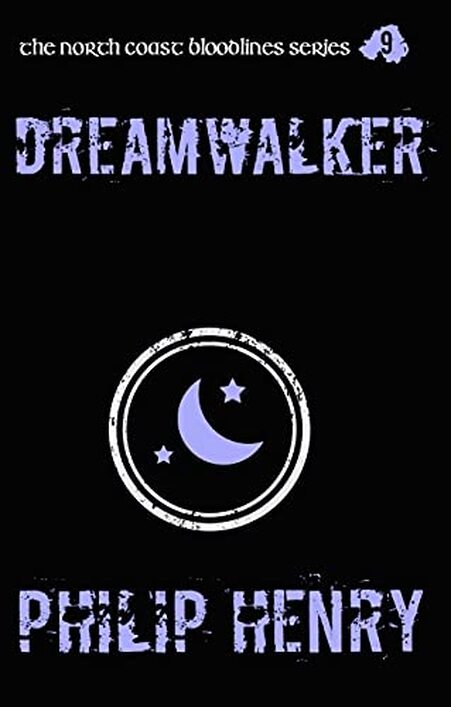
Alex: How much research do you do and what does it usually entail?
Philip: It depends on the project. With Method, I made the main character the same age as me, so I could use a lot of events and pop culture references from my own life. During lockdown I also wrote a WWII drama set in Northern Ireland and I had to do a lot of research for that one. Every time I mentioned something, like a motorbike, I had to find out what sort of bikes were available then and how much did they cost, so I know which one my hero could afford. All sorts of little things like that. I found it fascinating.
Alex: Do you ever base your characters on people you have encountered in real life?
Philip: They’re usually amalgams. A little piece of this person and a little piece of someone else. I have used a lot of the names of people in my Facebook group as characters, but since I don’t know most of them in real life, I couldn’t really say they’re based on them. All my books take place in the same universe, so I can’t reuse names or it would get confusing.
Alex: Which was the last book you read that blew you away?
Philip: I’ve been reading a lot of Irish crime fiction recently. I really like Catherine Ryan Howard. I read Rewind recently and thought it was excellent, but all her books are. Also Claire Allan from Derry writes great twisty-turny crime novels. I really loved Apple of my Eye. I’m currently reading The Searcher by Tana French and loving it.
Philip: It depends on the project. With Method, I made the main character the same age as me, so I could use a lot of events and pop culture references from my own life. During lockdown I also wrote a WWII drama set in Northern Ireland and I had to do a lot of research for that one. Every time I mentioned something, like a motorbike, I had to find out what sort of bikes were available then and how much did they cost, so I know which one my hero could afford. All sorts of little things like that. I found it fascinating.
Alex: Do you ever base your characters on people you have encountered in real life?
Philip: They’re usually amalgams. A little piece of this person and a little piece of someone else. I have used a lot of the names of people in my Facebook group as characters, but since I don’t know most of them in real life, I couldn’t really say they’re based on them. All my books take place in the same universe, so I can’t reuse names or it would get confusing.
Alex: Which was the last book you read that blew you away?
Philip: I’ve been reading a lot of Irish crime fiction recently. I really like Catherine Ryan Howard. I read Rewind recently and thought it was excellent, but all her books are. Also Claire Allan from Derry writes great twisty-turny crime novels. I really loved Apple of my Eye. I’m currently reading The Searcher by Tana French and loving it.
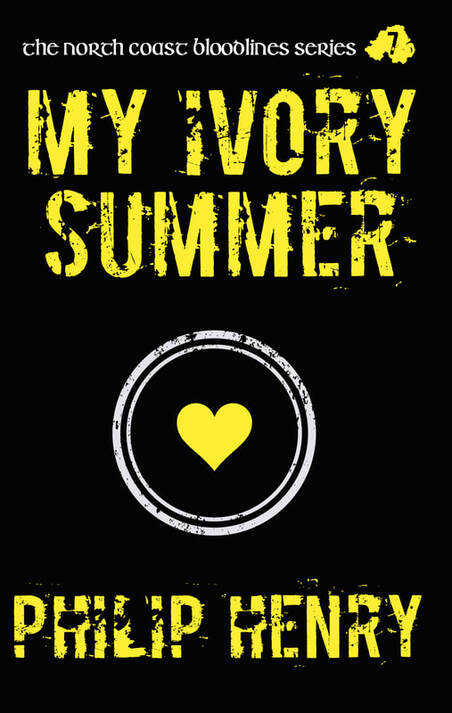
Alex: How do you market your books?
Philip: Not very successfully! LOL No, I just take whatever opportunities I can afford. This is the main drawback of not having one of the big publishing houses behind you – advertising. The majority of people who read my books enjoy them, but getting my name out further than my local area is the tough bit. Local newspapers and radio stations, and occasionally even TV channels, have been very good at promoting me in the past. This year, with Method, I actually have squirreled away a few quid to run a Facebook ad. Time will tell if it makes a difference.
Alex: What are your interests aside from writing? And what do you do to unwind?
Philip: I’m a huge music fan so I listen to a lot of music in the background while I’m writing, but I also make my own. I released an album of original songs in 2018 called Songs About Girls, which you can find on all the major streaming platforms, and I’m hard at work on album two.
I’m also a big movie fan. I used to go to the cinema every week without fail. Since the cinemas opened up again, I’ve only been once – to see the excellent A Quiet Place Part 2 – but I hope to get back into my old rhythm soon. I also watch a lot of Netflix, Amazon and Disney+. There’s just so much good stuff out there now it’s hard to keep up, but shows like The Mandalorian, Wandavision, The Great, and Snowpiercer have really impressed me in the last year. I’m currently bingeing Mare of Easttown which is incredibly good.
Philip: Not very successfully! LOL No, I just take whatever opportunities I can afford. This is the main drawback of not having one of the big publishing houses behind you – advertising. The majority of people who read my books enjoy them, but getting my name out further than my local area is the tough bit. Local newspapers and radio stations, and occasionally even TV channels, have been very good at promoting me in the past. This year, with Method, I actually have squirreled away a few quid to run a Facebook ad. Time will tell if it makes a difference.
Alex: What are your interests aside from writing? And what do you do to unwind?
Philip: I’m a huge music fan so I listen to a lot of music in the background while I’m writing, but I also make my own. I released an album of original songs in 2018 called Songs About Girls, which you can find on all the major streaming platforms, and I’m hard at work on album two.
I’m also a big movie fan. I used to go to the cinema every week without fail. Since the cinemas opened up again, I’ve only been once – to see the excellent A Quiet Place Part 2 – but I hope to get back into my old rhythm soon. I also watch a lot of Netflix, Amazon and Disney+. There’s just so much good stuff out there now it’s hard to keep up, but shows like The Mandalorian, Wandavision, The Great, and Snowpiercer have really impressed me in the last year. I’m currently bingeing Mare of Easttown which is incredibly good.
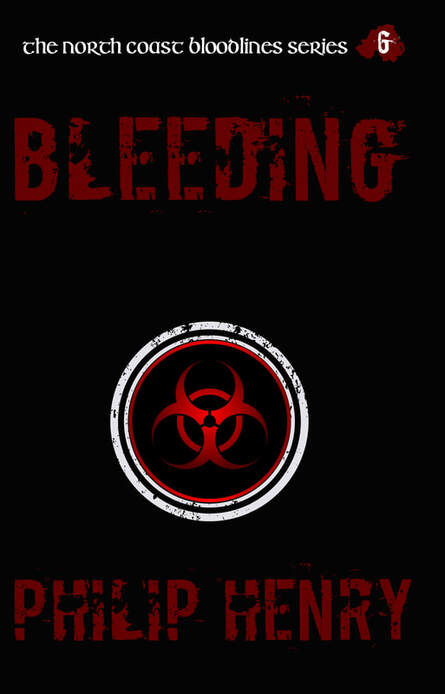
Alex: Which authors do you particularly admire and why?
Philip: Stephen King is the obvious answer, but he’s a legend for a reason. The guy just keeps churning stuff out and it’s all top quality. I hope I’ve got that number of books behind me when I’m his age. Douglas Adams was also a big influence on me because of how well he conveys complex ideas in a very simple way. I remember reading Anne Rice’s vampire books, and though I liked them, the style and language she uses was something I knew I couldn’t copy, and really wouldn’t want to. But Douglas Adams, when I first read him, made writing seem possible; like something I could learn. I think we also have a very similar sense of humour. A reviewer for one of my early novels called me the bastard son of Stephen King and Douglas Adams, which I took as a great compliment.
Alex: Where can people learn more about your work?
Philip: My website is www.philiphenry.com and it’s got links to all my films, music and books on there, plus news of whatever I’ve got in the pipeline.
Alex: Thank you so much for sharing this with us Philip. And I'm really pleased you gave Douglas Adams a shout. It's the first time he has appeared in these pages, and I am a big fan. In fact, here's a bit of useless information: the chap who plays a prison warder in the trailer for my first book was Douglas Adams' gardener. LOL. Anyway, good luck with Method. I look forward to reading it.
Philip: Thanks for that Alex. And thanks for inviting me over. It's been great to chat.
Philip: Stephen King is the obvious answer, but he’s a legend for a reason. The guy just keeps churning stuff out and it’s all top quality. I hope I’ve got that number of books behind me when I’m his age. Douglas Adams was also a big influence on me because of how well he conveys complex ideas in a very simple way. I remember reading Anne Rice’s vampire books, and though I liked them, the style and language she uses was something I knew I couldn’t copy, and really wouldn’t want to. But Douglas Adams, when I first read him, made writing seem possible; like something I could learn. I think we also have a very similar sense of humour. A reviewer for one of my early novels called me the bastard son of Stephen King and Douglas Adams, which I took as a great compliment.
Alex: Where can people learn more about your work?
Philip: My website is www.philiphenry.com and it’s got links to all my films, music and books on there, plus news of whatever I’ve got in the pipeline.
Alex: Thank you so much for sharing this with us Philip. And I'm really pleased you gave Douglas Adams a shout. It's the first time he has appeared in these pages, and I am a big fan. In fact, here's a bit of useless information: the chap who plays a prison warder in the trailer for my first book was Douglas Adams' gardener. LOL. Anyway, good luck with Method. I look forward to reading it.
Philip: Thanks for that Alex. And thanks for inviting me over. It's been great to chat.


